- Home
- Alison Weir
The Lady Elizabeth Page 3
The Lady Elizabeth Read online
Page 3
Elizabeth was watching her sister. Mary had withdrawn into one of her brooding reveries and seemed to have forgotten her presence.
“This Queen Jane,” she said, making Mary start, “is she beautiful?”
“Not really,” replied Mary, “although some call her fair. She is very fair—so pale, actually, that her skin looks quite white.”
“My mother was beautiful,” Elizabeth said in a small voice.
Mary did not answer. She had not thought the whore beautiful, with her coarse black hair and sallow skin, but she could not say that to Elizabeth, not in the present circumstances. And in any case, she was holding her breath, because this was the first time that Elizabeth had mentioned Anne Boleyn since that dreadful day in the park.
The child looked up at her, regarding her with eyes that seemed old in that young face.
“What did my mother do that was bad?” she asked, voicing the question that had been in her head for some time now. Night after night she had wondered about this, burning to know the truth. Mary, she had decided, was the only person who might tell her.
“She was unfaithful to the King,” Mary said, picking her words with care. “And she plotted to kill him.” She looked anxiously at her sister, waiting for the storm to break. It didn’t. Elizabeth was in command of herself this time. She had learned, in one bitter lesson, that tears could not alter things, and anyway, it was babyish to cry. But inside, she was raging. How could her lovely, kind mother have plotted to kill her father? She could not believe it. Of course, if Mary said it, it must be true, but it was a hard thing to stomach, and she felt a little sick. She struggled to control it.
“How was she put to death?” she asked, staring at her feet in their soft kid, square-toed shoes.
“With a sword,” Mary replied firmly, as though there was an end to the matter. That was surely as much as a young child could bear to hear. The details were too horrific, even for someone of Mary’s age, to endure, and because of this she could not triumph in the death of her enemy, for Anne had more than paid the price for her sins. Nor was it for Mary to judge her now: Anne had been summoned before a higher tribunal.
“A sword?” Elizabeth’s eyes widened.
Mary swallowed.
“It was very quick, and she did not suffer. They say she was extremely brave.” She had had spirit, the witch, you could say that for her. “You must pray for her, Sister, pray for the repose of her soul.”
Mary got up and held out her hand to Elizabeth. The child took it, her face pale. She was imagining the sword descending, slicing, like a knife through an apple.
“Let us go and see if we can get these flagons refilled,” Mary said, leading her toward the kitchens. “It is so hot again today.”
A short while later they were sitting in the cool schoolroom, enjoying the breeze from the open windows.
“Shall you like to go to court and see our father and our new stepmother?” Mary ventured, seeing that Elizabeth was very quiet, and hoping to divert her.
“I want my mother,” Elizabeth said simply, her voice breaking. “They shouldn’t have killed her with a sword.” Her control had vanished: The tears were streaming down her face. But she was bearing her grief quietly. Mary drew her into her arms and cuddled her.
“I am so sorry, sweeting,” she said. “So sorry…Believe me, I do understand. I too have lost my mother, so we are both in the same case. And we are both bastards now, as our father will have it.”
Elizabeth ceased crying.
“What’s a bastard?” she asked. She had heard that word before, had caught it on the tongue of Sir John Shelton when she surprised him talking confidentially to Lady Bryan recently; seeing her suddenly appear in the doorway, both of them had looked up from their talk in startled fashion, and stuttered their greetings. But of course, the word had meant nothing to her then.
Mary looked as if she were about to weep herself.
“A bastard is an unfortunate person who is not born in true wedlock,” she explained. “When a man and woman are married, any children they may have are trueborn. But if they are not lawfully married, then their children are bastards. I don’t expect you to understand that, Sister—you are far too young to be troubled with such matters—but suffice it to say that our father the King came to believe he was not lawfully married to either of our mothers, so he put them both away, one after the other, and declared you and me, in our turn, bastards. That means we cannot inherit the throne or rule England after him.”
“You mean I really am not a princess anymore?” Elizabeth asked miserably.
“No, Sister, you are not, and neither am I,” Mary answered, her tone bitter. “We are to be honored by all as the King’s daughters, but in law we are bastards. And because we are girls, no one bothers too much, for women are not meant to rule kingdoms. What our father needs now, so very urgently, is a son to be king after him. We must pray that Queen Jane is able to give him one. Will you do that, Elizabeth?”
“Yes,” agreed Elizabeth doubtfully. “But I do wish I was still a princess.”
“Good-bye, sweet Sister,” said the Lady Mary, stooping to kiss Elizabeth before mounting her horse. “I will tell our father that you are in good health and that your accomplishments are such that he will have cause to be proud of you in time to come. I shall next see you at court, when you are summoned to greet our new stepmother.”
Elizabeth did not have long to wait for that summons, which arrived at Hatfield a week later in the saddlebag of a messenger wearing the green-and-white Tudor livery.
“Elizabeth, the King’s Highness has commanded you to Hampton Court,” Lady Bryan told her, looking pleased. “We must start packing at once.” There followed a flurry of activity as a pile of small garments—chemises, gowns, kirtles, sleeves, hoods, and stockings—were dragged from the chest or from their pegs on the wall and packed away in a large trunk. On the top of the pile went Elizabeth’s lute, and the horn book from which she was learning her letters. Her doll was to travel in the chariot with her.
It was a long journey down the bumpy Great North Road into London, and not a comfortable one, for despite the plump cushions lining the horse-drawn chariot in which Elizabeth traveled with Lady Bryan, the vehicle was unsprung. It swayed and jolted on the bumpy roads, making her feel a little sick, but she was happy to snuggle back into the cushions and ignore the discomforts because she was going to court, to meet her new stepmother! Near Whitehall Palace, however, their progress became easier, because there they could join the private royal road, recently built by the King, that led through Chelsea and then all the way to Hampton Court.
Looking out of the window, Elizabeth saw the ramshackle dwellings of the poorer people clustered around Westminster Abbey, the solid timber houses of prosperous merchants, the churches with their ringing bells, and the townsfolk bustling here and there. She drew away, wrinkling her nose, from the city stink of sewage, rotting food, and unwashed bodies, or the sight of a beggar in rags, his stump scabrous with sores, but peeped out again, emboldened by the broad grin of a rosy-cheeked goodwife, who boldly offered her an apple from her basket. Suddenly, there was a thud, as a well-aimed egg splattered against the painted side of the litter, and an indignant Lady Bryan shook her fist at the impudent apprentice who cheekily bit his thumb before disappearing into an alley.
All along the wayside, clusters of people were gathering to stare in awe at Elizabeth’s fine carriage with its royal crest, and wave to its small occupant. It gave her a good feeling to be accounted so important, and looking at the plain, homespun garments of the common folk, she felt a certain satisfaction that she did not have to live as they did in their humble cottages, but was housed in a great palace and clothed in rich fabrics.
If Elizabeth had thought Hatfield grand, she was struck by awe when she saw the massive rose-brick palace nestling by the River Thames at Hampton. Mighty and sprawling it lay, its myriad windows reflecting the twinkling sunlight, its tall chimneys silhouetted against the
sky. It looked, thought Elizabeth, like a fairy-tale palace of legend. As the Yeomen of the Guard at the gatehouse raised their pikes to let the chariot through, her eyes were wide, taking in the spacious ranges of courtier lodgings that lined the base court, the press of people hastening to and fro, most of them servants or household officials on errands, with here and there a handsomely attired lord or lady, or a black-robed cleric. What drew her attention most, as the chariot pulled to a halt just inside the inner court, was the massive great hall towering above her, almost touching the sky. If she had been here before, she had no memory of it, which she surely would have done, for the splendor of the place was breathtaking. And she hadn’t even seen inside yet.
Escorted by the Chamberlain of the Household, who had come to greet them, Lady Bryan took Elizabeth by the hand and led her through the inner gateway and up the imposing processional stair that led to the great hall. Elizabeth gasped as she entered it, her eyes drinking in the brilliantly colored tapestries that lined the walls, the jeweled glass in the high windows, and the massive hammerbeam roof far above them. The wooden trestles were being set up for dinner, and she was fascinated to see hundreds of trenchers and beakers being laid out on the cloths. Then she was tripping in the wake of Lady Bryan across the green-and-white-tiled floor to a door to the left of the dais. Here, in a narrow passage, servants were folding napery and polishing ewers. The Chamberlain led his visitors to a small room nearby where refreshments were set out on a table.
“You may make ready in here, Lady Bryan,” he said kindly. The governess took one of the brushes that had been set out and began removing the dust of the journey from her own clothes and Elizabeth’s, and put their hair and hoods to rights. Then she made Elizabeth twirl around in front of her. The child looked very pretty in her orange satin gown: its tight, square-necked bodice and full skirts became her slender little figure. It was one of the last garments Queen Anne had bought for her daughter.
“Let me just brush your hair, and then we can go in,” the governess said briskly. Elizabeth was squirming with impatience.
Another door, more pikes raised, and they entered a huge chamber where the Yeomen of the Guard stood to attention along all four walls, watching all those who entered or departed. Here, there was a great throng of people, mostly courtiers by the look of them, and their eyes were all fixed expectantly on a massive door in the far corner, the door toward which Elizabeth and Lady Bryan were now being steered.
“Make way for my Lady Elizabeth’s Grace!” cried the Lord Chamberlain, and the ranks of avid, envious people obediently parted to let them through. As they neared it, the big door swung open and the Chamberlain called, in an important voice, “The Lady Elizabeth’s Grace approaches!”
At his words, the luxuriously gowned ladies and gentlemen standing in the inner chamber bowed or made obeisances as Elizabeth entered the room. How marvelous it was to know that these important grown-ups were doing this for her!
“Curtsy now!” whispered Lady Bryan. Elizabeth dipped gracefully, then ventured to raise her eyes to where the canopy of estate dominated the far end of the room. Beneath this, on his velvet throne on the carpeted dais, sat her father the King, majestic and imposing, and beside him, in a smaller chair, a lady in a golden dress with long blond hair. Elizabeth realized at once that this was Queen Jane. She recognized her by her marble-like skin, which was just as white as Mary had described.
Three steps forward, and another curtsy; three more steps, then she and Lady Bryan fell to their knees, heads bent. The King rose, aware that all eyes were upon him, waiting to see what reception he would accord Anne Boleyn’s daughter.
“Rise, Lady Bryan,” he commanded in his high, imperious voice, and as he spoke, he descended from the dais and scooped Elizabeth up in his arms.
“Welcome, my little Lady Bessy.” He smiled and planted a smacking kiss on her cheek.
“Good day, sir,” she piped up, a little overwhelmed by it all, and looking around her at the curious, speculative faces, some of which were now smiling.
“I trust your journey was not too difficult,” the King inquired.
“Oh, no, sir, but it was very long!” Elizabeth replied. “And I was very bored.”
The King could not suppress a grin.
“Come and meet your new stepmother, Bessy. Let me present you to Queen Jane.” He set the child down.
The lady seated on the dais was rather plump, Elizabeth thought; her nose was long, her blue eyes a little wary, her small mouth tightly pursed. But when she smiled—and she was smiling now—her face was transformed. Elizabeth started to curtsy, but when the Queen held out her arms, she abandoned the effort and went into them, finding herself enveloped in gold brocade and soft flesh, for her stepmother’s gown was cut very low.
“Welcome to court, my Lady Elizabeth,” she said, and there was compassion in her voice. A few courtiers ventured to applaud the touching scene; others continued to watch, smilingly or inquisitively. Elizabeth was just happy to be back with her father. She only wished it could have been her mother beside him; her mother had been so much more beautiful than Queen Jane. Oh, how she missed her.
Dinner had been delayed so that the King could receive his daughter, but it was now past eleven o’clock with the sun high in the sky, and everyone was hungry. Henry had decided to dine in public this day, so that all could witness this happy domestic reunion, and presently a table was set upon the dais and a damask cloth embroidered with flowers unfolded and spread in the most precise fashion. Elizabeth was utterly intrigued by the ritual involved in setting the royal table, a ritual far more intricate than any ever employed at Hatfield. Napkins were laid on the cloth, which was sprinkled with sweet-smelling herbs, then gold plate and cutlery, goblets of Venetian glass, finger bowls, white manchet loaves, and chased ewers of wine. The crowning glory was a great golden saltcellar fashioned in the form of a ship, which was placed before the King.
Other tables were being set up at right angles to the dais, and by and by, the lords and ladies took their places, remaining standing until the King and Queen were ready to eat. Elizabeth and Lady Bryan were seated at the top end of the table nearest the King. For the young child, it was a great and grown-up privilege to be allowed to eat formally with the lords and ladies in her royal father’s presence, and she took care to remember her table manners. She must lay her napkin over her left shoulder—Lady Bryan helped her to do this—and wash her hands in the finger bowl provided. On no account was she to rest her elbows or her fists on the table, and she was to hold her knife in one hand and use the other to carry the food to her mouth. A gentleman sitting opposite kindly cut up her meat with his dagger, since she had none of her own. Wine was served, neat—not watered, as it was at Hatfield—and it went straight to her head, leaving her sleepy and a little giggly. As soon as the meal ended, at a nod from the King, Lady Bryan carried Elizabeth to the apartment that had been made ready for her, and left her to slumber the afternoon away.
There followed three days filled mostly with feasting and merriment. The King continued to make much of Elizabeth, and the gentle Queen Jane went out of her way to show affection to this child whose mother she had supplanted. Then Mary arrived at court, and there was more jollity, and it seemed to Elizabeth that she was now very much part of a warm, united family. If only her mother could be a part of it…
All too soon, she was on her way home again, with Lady Bryan, for the King and Queen were about to depart on a visit to Kent. Elizabeth was disappointed at having to say good-bye to her father, but very grateful to receive an affectionate farewell. When she was brought to him in the presence chamber, which was packed with the usual throng of courtiers, Henry picked her up, tickled her under the chin, and kissed her lovingly.
“A charming child, Your Majesty,” observed the French ambassador obsequiously. The King beamed.
“Yes, it grieves us to part with her,” he said, to Elizabeth’s delight. “She’s a true Tudor, there’s no mistaking that, eh?
Bright as a button, and witty too!”
He set her down.
“Go, Daughter, and God be with you. You shall come and see us again soon.”
As she sat in the jolting litter, sad to be leaving the excitement and pleasures of the court for the placid routine of the nursery at Hatfield, and even more desolate at being gone from her father and her dear sister Mary, she thought about her new stepmother. Kind as Jane had been, Elizabeth knew she would not miss her very much. The memory of her mother was still too vivid, and the new Queen could not hope to live up to that.
Several months passed, and there was always a reason why Elizabeth could not go to court, nor her father visit her.
“His Majesty is away hunting,” said Sir John Shelton.
“His Majesty is much occupied with plans for the Queen’s coronation.”
“There is plague abroad. The coronation has been postponed, and no one is allowed to visit the court for fear of the pestilence.”
Then Sir John had even more alarming news, although Elizabeth did not fully understand what he was talking about.
“There is a great rebellion in the North. They are calling it the Pilgrimage of Grace. The Catholics are determined to halt the King’s religious reforms.”
Lady Bryan looked grave, but Elizabeth was more interested in the hobbyhorse that the Queen had sent for her third birthday in September. Up and down the gallery she rode on it, progressing from a walk to a trot to a canter and then a gallop. Careering along in this fashion, she heard very little of the conversation between her elders, and thus never found out that her father had come perilously near to losing his throne. In fact, the rebellion meant nothing to her until she was allowed to participate in the celebrations to mark its suppression in December.

 Richard III and the Princes in the Tower
Richard III and the Princes in the Tower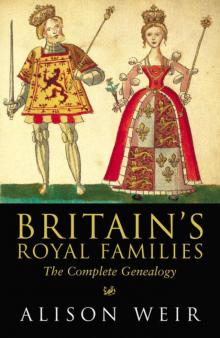 Britain's Royal Families: The Complete Genealogy
Britain's Royal Families: The Complete Genealogy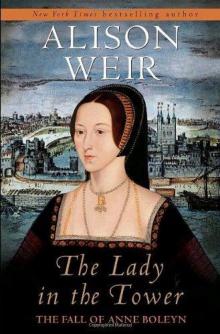 The Lady in the Tower: The Fall of Anne Boleyn
The Lady in the Tower: The Fall of Anne Boleyn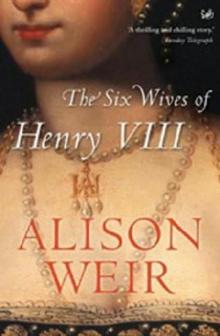 Six Wives of Henry VIII
Six Wives of Henry VIII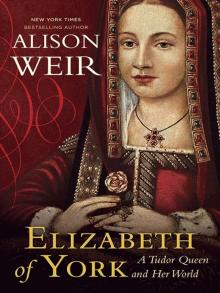 Elizabeth of York: A Tudor Queen and Her World
Elizabeth of York: A Tudor Queen and Her World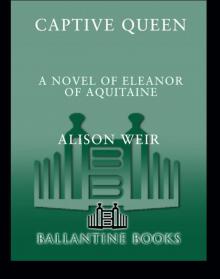 Captive Queen
Captive Queen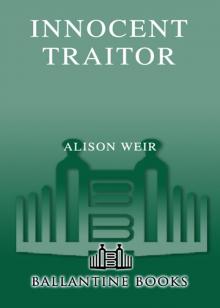 Innocent Traitor
Innocent Traitor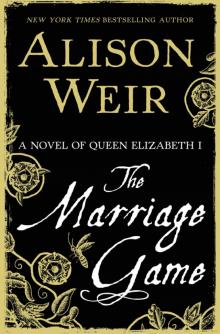 The Marriage Game
The Marriage Game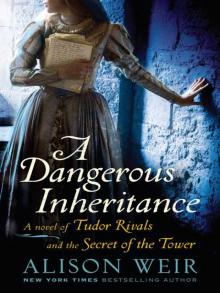 A Dangerous Inheritance
A Dangerous Inheritance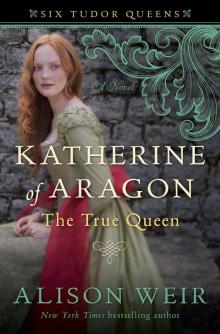 Katherine of Aragón: The True Queen
Katherine of Aragón: The True Queen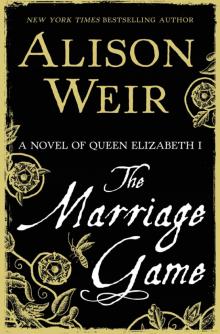 The Marriage Game: A Novel of Queen Elizabeth I
The Marriage Game: A Novel of Queen Elizabeth I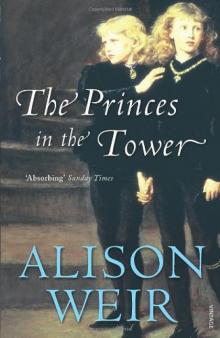 Princes in the Tower
Princes in the Tower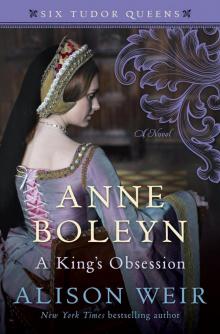 Anne Boleyn: A King's Obsession
Anne Boleyn: A King's Obsession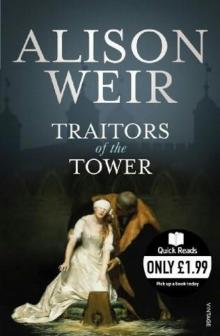 Traitors of the Tower
Traitors of the Tower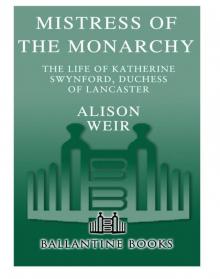 Mistress of the Monarchy: The Life of Katherine Swynford, Duchess of Lancaster
Mistress of the Monarchy: The Life of Katherine Swynford, Duchess of Lancaster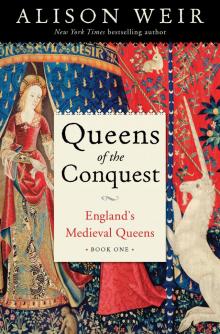 Queens of the Conquest: England’s Medieval Queens
Queens of the Conquest: England’s Medieval Queens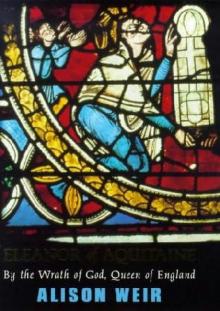 Eleanor of Aquitaine: A Life
Eleanor of Aquitaine: A Life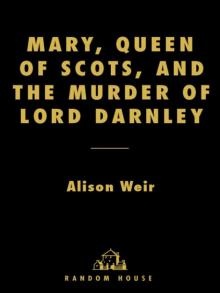 Mary, Queen of Scots, and the Murder of Lord Darnley
Mary, Queen of Scots, and the Murder of Lord Darnley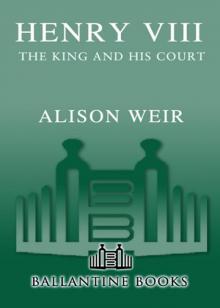 Henry VIII: The King and His Court
Henry VIII: The King and His Court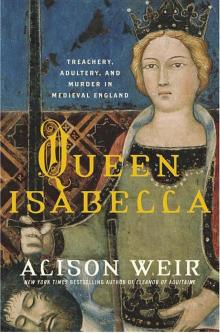 Queen Isabella: Treachery, Adultery, and Murder in Medieval England
Queen Isabella: Treachery, Adultery, and Murder in Medieval England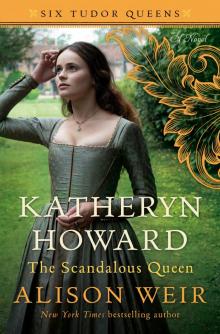 Katheryn Howard, the Scandalous Queen
Katheryn Howard, the Scandalous Queen Arthur- Prince of the Roses
Arthur- Prince of the Roses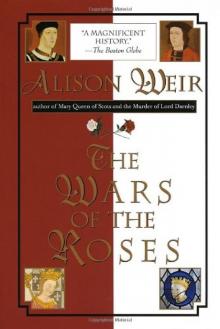 The Wars of the Roses
The Wars of the Roses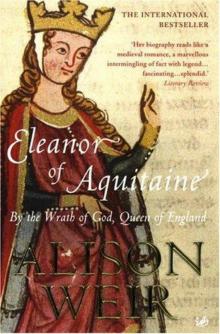 Eleanor of Aquitaine: By the Wrath of God, Queen of England
Eleanor of Aquitaine: By the Wrath of God, Queen of England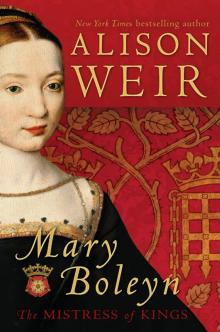 Mary Boleyn: The Great and Infamous Whore
Mary Boleyn: The Great and Infamous Whore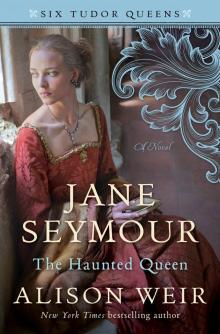 Jane Seymour: The Haunted Queen
Jane Seymour: The Haunted Queen Anna of Kleve, the Princess in the Portrait
Anna of Kleve, the Princess in the Portrait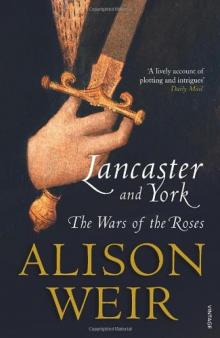 Lancaster and York: The Wars of the Roses
Lancaster and York: The Wars of the Roses The Grandmother's Tale
The Grandmother's Tale The Princess of Scotland (Six Tudor Queens #5.5)
The Princess of Scotland (Six Tudor Queens #5.5)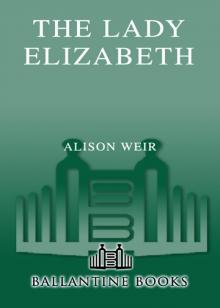 The Lady Elizabeth
The Lady Elizabeth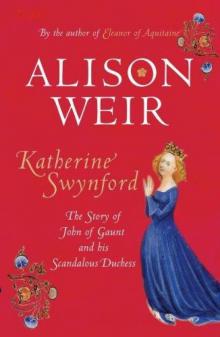 Katherine Swynford: The Story of John of Gaunt and His Scandalous Duchess
Katherine Swynford: The Story of John of Gaunt and His Scandalous Duchess The Curse of the Hungerfords
The Curse of the Hungerfords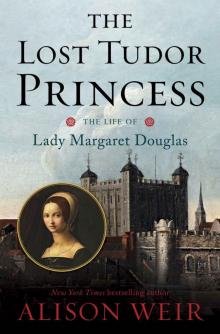 The Lost Tudor Princess: The Life of Lady Margaret Douglas
The Lost Tudor Princess: The Life of Lady Margaret Douglas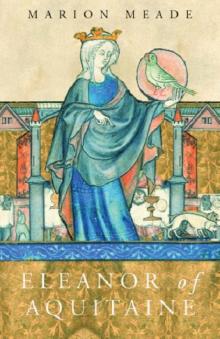 Eleanor of Aquitaine
Eleanor of Aquitaine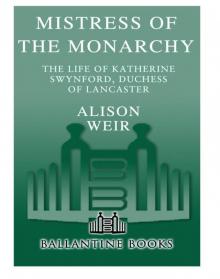 Mistress of the Monarchy
Mistress of the Monarchy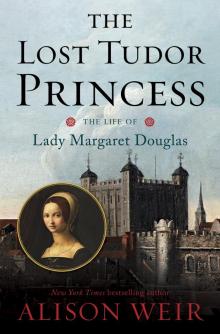 The Lost Tudor Princess
The Lost Tudor Princess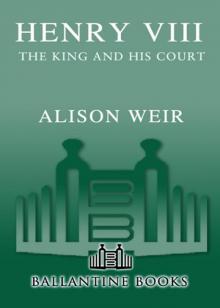 Henry VIII
Henry VIII Anne Boleyn, a King's Obsession
Anne Boleyn, a King's Obsession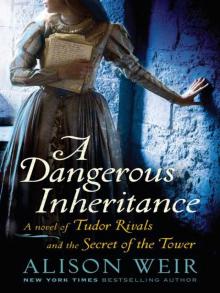 A Dangerous Inheritance: A Novel of Tudor Rivals and the Secret of the Tower
A Dangerous Inheritance: A Novel of Tudor Rivals and the Secret of the Tower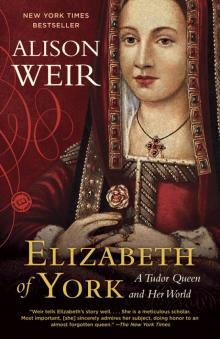 Elizabeth of York
Elizabeth of York Katherine of Aragon, the True Queen
Katherine of Aragon, the True Queen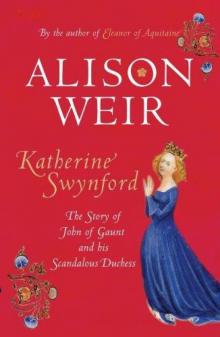 Katherine Swynford
Katherine Swynford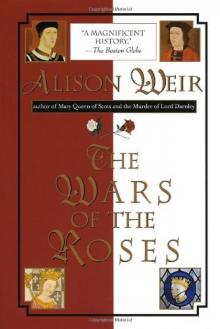 Wars of the Roses
Wars of the Roses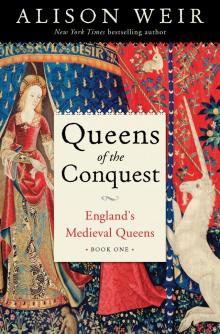 Queens of the Conquest
Queens of the Conquest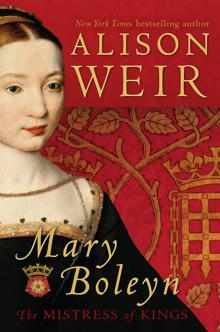 Mary Boleyn
Mary Boleyn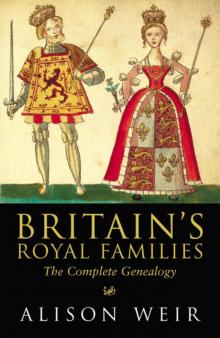 Britain's Royal Families
Britain's Royal Families The Tower Is Full of Ghosts Today
The Tower Is Full of Ghosts Today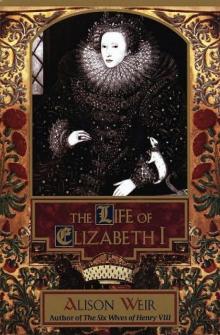 Life of Elizabeth I
Life of Elizabeth I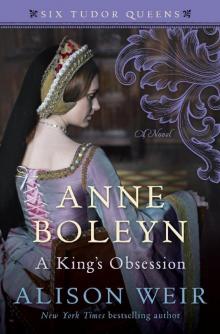 Anne Boleyn A King's Obssession
Anne Boleyn A King's Obssession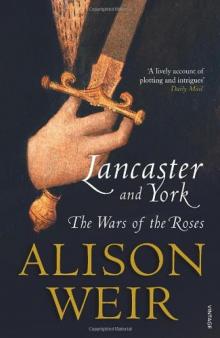 Lancaster and York
Lancaster and York Jane Seymour, the Haunted Queen
Jane Seymour, the Haunted Queen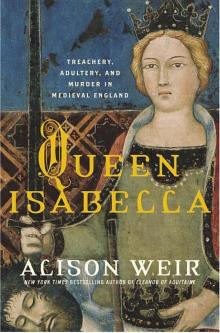 Queen Isabella
Queen Isabella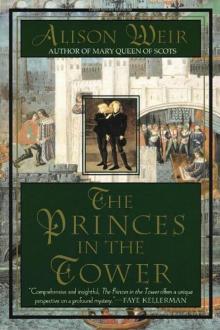 The princes in the tower
The princes in the tower